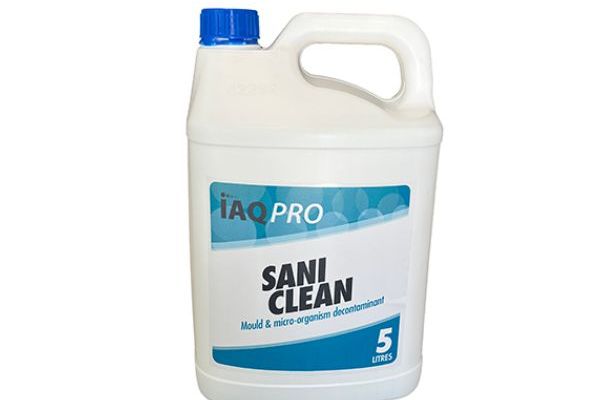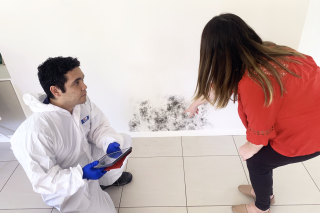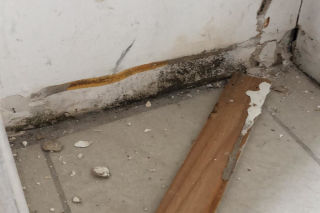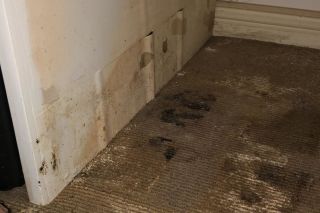Mould Exposure: Long Term Side Effects
Mould, even though it can be associated with benefits to humanity, the word does not normally lend itself to positive imagery. It is something that naturally occurs in the ecosystem and it has its benefits; it breaks down dead foliage so it can return nutrients to the soil.

It is used to create penicillin and if you have a taste for it, it can even be consumed in products like blue cheese but the last place you want mould growing is in your home or throughout your business. For good reason as well, while mould is used in medicines and food, it is carefully cultivated, when it comes to mould in the home, its presence can lead to some damaging side effects. Long term exposure to mould, in particular black mould, can have a range of effects on the human body ranging from mild to quite severe, so if you see mould forming around the home or in your business premises it is best not to ignore it.
What Makes Mould Dangerous?
Mould, more specifically black mould can release into the air what is known as mycotoxins. As mould grows, more of these mycotoxins are released into the air. At low levels, these may not be harmful but as they increase, those who are more sensitive to these mycotoxins can start to suffer side effects. Sensitive individuals can be the elderly or children along with people that have asthma or other breathing and sinus issues. Eventually, even those who are not sensitive may start to develop symptoms of long-term mould exposure and these symptoms can be quite harmful.
What are the Symptoms of Long-Term Mould Exposure?
Prolonged exposure to mould in the home or workplace can be harmful to everybody, regardless of your current health. For sensitive individuals, even minor exposure can trigger a range of symptoms. Mould poisoning, which is also known as Mycotoxicosis, can cause and exacerbate respiratory issues. Those that suffer from asthma may found an increase in symptoms, like wheezing and attacks though it is important to note that it is not just sensitive individuals that suffer from these kinds of symptoms. Perfectly healthy individuals with no history of respiratory issues have been reported to suffer prolonged coughing, wheezing and difficulty breathing. This combined with a weakened immune system that long-term mould exposure can cause may lead to even worse conditions like bronchitis. In a perfect circle of irritation; long-term exposure can cause suffers to develop these infections, while also making it hard to recover. Beyond respiratory issues, symptoms like eye irritation, as well as skin irritation and sinus issues may also be present. As for toxicity increases, people exposed to mould for the long term may start to experience symptoms such as persistent headaches and migraines, increased exhaustion and random muscle cramps. The person exposed in more severe cases may also suffer from sensitivity to light, unexplained weight gain and hair loss. There are a range of physical symptoms that can be present due to long-term mould exposure, so if you or a family member starts experiencing these symptoms without explanation, an investigation into the home or the workplace may prove necessary.
Long-Term Mould Exposure and Mental/Psychological Issues
While the physical symptoms are excessively documented and a lot of research has gone into the study of the physical symptoms of long-term mould exposure, newer research has been looking into the link between long-term mould exposure and some psychological issues. Exhaustion, sensitivity to light and unexplained weight gain and hair loss are going to have an impact on your mental health, but other symptoms of long-term mould exposure have also been documented. Some cases have reported insomnia, confusion, difficulty concentrating, anxiety, depression and loss of appetite. These issues can be exacerbated as well if the person that is being exposed also suffers from some form of prior brain injury. While there is still a lot to be researched and understood about how mould poisoning can cause these issues, it is important to understand just how severe unchecked mould can be.
What do I do if I’m suffering from Long-Term Mould Exposure?
Getting checked by a doctor is the first step. If you have a reason to suspect or if you are just in the process of elimination, then getting a blood test or a skin prick test may be able to determine whether you are being exposed to mycotoxins. Allergy medications and over the counter solutions can help treat the symptoms, but to make sure that you do not develop more severe reactions and to avoid long term mould exposure, it is important to remove the source of the issue if possible. These medications just relieve the symptoms for the time being and over time, symptoms can return. The longer the exposure, the more severe the symptoms can develop. Specialised cleaning companies can search for and remove black mould, so it is worth investing in a professional. While it may be tempting to remove the mould yourself, you want to be sure that that it is completely removed to prevent further exposure. A specialised cleaning company will also be able to help with the conditions that allow the mould to grow as well.
When it comes to the safety of you, your family and/or your employees, the longer that you or they are exposed to toxic mould, the more long-term health issues may develop. Long-term mould exposure can have a detrimental effect on many people’s health, whether they are sensitive to mould or not. It is not worth risking the health and wellness of the individuals in your life. Making sure that mould is not able to develop by keeping indoor spaces dry and away from condensation is the first step to prevent any issues, if it is not possible though, then making sure the mould is removed by professionals as quickly as possible is vital. Long-term mould exposure can cause severe issues that can last for a long period of time and may cause irreversible damage to the human body, so it is important to never ignore that bit of mould growing.
Do you Have Mould?
We offer a range of mould services including quotes for mould removal also mould testing and mould inspections.





